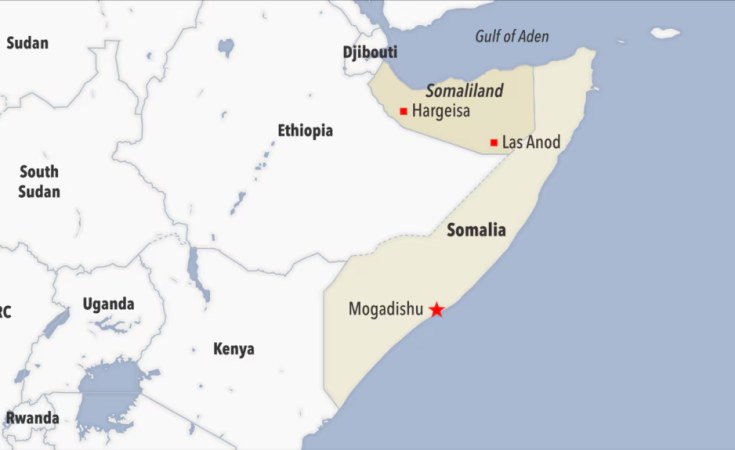In a significant diplomatic move, Turkish Foreign Minister Hakan Fidan held separate high-level meetings on Monday with his Ethiopian and Somali counterparts, signaling Ankara's deepening involvement in mediating a growing rift between the two Horn of Africa nations.
As Ethiopia and Somalia grapple with escalating tensions, Turkey steps into the fray, aiming to foster a dialogue that could reshape the regional dynamics.
Fidan's day began with a crucial meeting with Ethiopia's Foreign Minister, Taye Atske Selassie, followed by a discussion with Somalia's Foreign Minister, Abshir Omar Jama, commonly known as Moallim Fiqi.
These meetings, though lacking in publicized details, underscore Turkey's commitment to defusing a crisis that threatens to destabilize an already fragile region.
Background of the Tensions
The roots of the current tensions can be traced back to a controversial agreement struck on January 1 between Ethiopia and Somaliland, a self-declared independent region that is internationally recognized as an autonomous region of Somalia. This deal, which many viewed as a bold yet provocative move by Addis Ababa, has significantly strained relations between Ethiopia and Somalia.
International condemnation swiftly followed, with global powers urging Ethiopia to respect Somalia's sovereignty and territorial integrity. Despite these diplomatic pressures, Ethiopia has remained steadfast in its position, further complicating the situation.
The tension comes at a time when both nations are navigating complex internal challenges. For Somalia, the issue touches on its territorial sovereignty, a matter of national pride and legal integrity.
For Ethiopia, it is a strategic necessity, driven by the need for access to international waters, something it lost in 1991 when Eritrea seceded and became an independent nation.
Turkey's Strategic Role in the Region
Turkey's involvement in the Horn of Africa is neither sudden nor superficial. Over the past decade, Ankara has cultivated close economic, diplomatic, and military ties with both Somalia and Ethiopia.
President Recep Tayyip Erdogan's landmark visit to Mogadishu in 2011 marked the beginning of a robust partnership with Somalia, which has since seen Turkish assistance in various forms, including the training of Somali security forces and substantial development aid.
In February of this year, Turkey and Somalia further solidified their alliance by signing a defense pact, under which Ankara committed to providing maritime security support to help Somalia protect its territorial waters.
This agreement not only reflects the deep trust between the two nations but also highlights Turkey's strategic interest in maintaining a foothold in Africa, particularly along key global shipping routes.
The Diplomatic Path Forward
The current round of Ankara-mediated discussions between Ethiopia and Somalia follows an initial dialogue in early July, where the foreign ministers of both nations met directly in Turkey's capital.
This was succeeded by Turkish Foreign Minister Hakan Fidan's visit to Ethiopia in August, where he engaged in talks with Ethiopian Prime Minister Abiy Ahmed, further emphasizing Turkey's role as a key mediator.
The ongoing negotiations aim to explore a possible solution that would allow Ethiopia access to international waters through Somalia without compromising Somalia's territorial sovereignty.
This is a delicate balancing act, as Ethiopia, the most populous landlocked country in the world, urgently seeks a route to the sea to boost its economic prospects.
What's at Stake
The stakes in these negotiations are high. For Ethiopia, securing access to the sea is not just a matter of convenience but a strategic imperative that could enhance its economic stability and regional influence.
For Somalia, the issue is one of national integrity and sovereignty, with potential implications for its internal security and regional standing.
For Turkey, successfully mediating this dispute could further cement its status as a key player in African geopolitics, enhancing its influence not just in Somalia and Ethiopia, but across the continent.
Ankara's close ties with both nations place it in a unique position to facilitate dialogue, though the path forward remains fraught with challenges.


